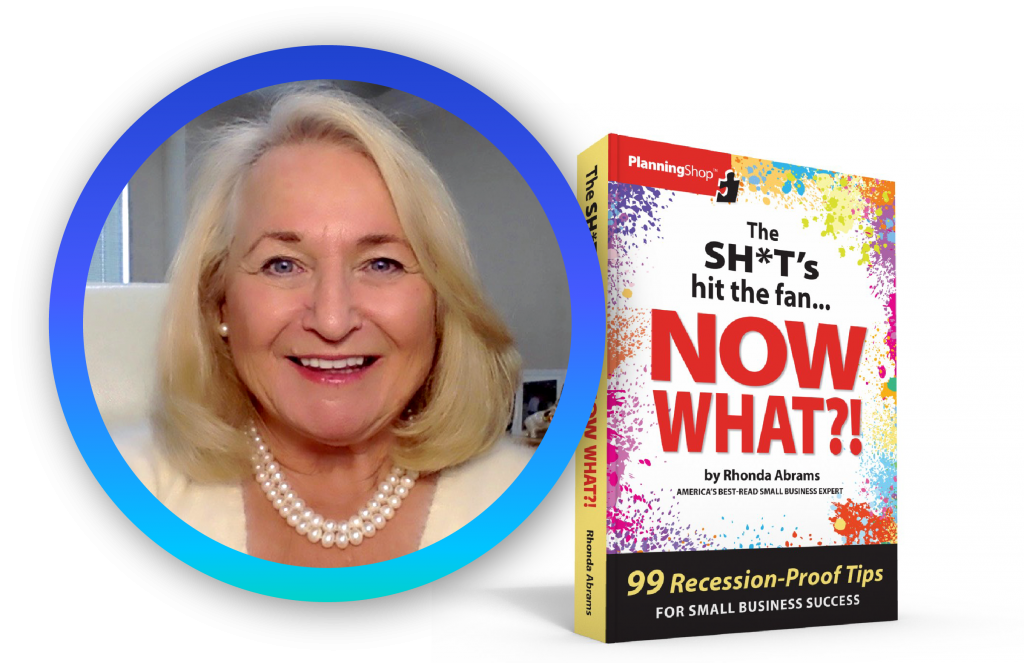
Dissecting the Short-Lived European Super League’s Biggest PR Mistakes
May 27, 2021
Why You Need to Craft Bylines If You Aren’t Already (and How to Get Them Placed)
July 27, 2021
Dissecting the Short-Lived European Super League’s Biggest PR Mistakes
May 27, 2021
Why You Need to Craft Bylines If You Aren’t Already (and How to Get Them Placed)
July 27, 2021Author and USA TODAY columnist Rhonda Abrams on Breaking Through with Small Business Media

Author and USA TODAY columnist Rhonda Abrams not only writes about entrepreneurship, she lives it as President and Chief Entrepreneur of PlanningShop, a publishing company creating content for small businesses
Her newest book, The Sh*t’s Hit the Fan…Now What?! offers 99 actionable tips for small business success. We sat down with her to talk about the challenges facing small businesses coming out of the pandemic and how brands can best support them, how PR pros can break through with the media on small business topics, and the important role PR can play in helping small businesses succeed.
Following is part two of our two-part blog series:

Q: Let’s talk about your column and media trends. What are you seeing out there?
A: There aren’t a lot of editors left. It’s really important for PR people to know how overworked everybody is. I’m a little different because I’m a columnist, not a reporter, and while the column is part of my career, it’s not my livelihood. A lot of people who are employed by outlets are always worried about what their next job is, because there’s so much uncertainty in their current job. And that’s a reality for PR people to understand.
Q: How do editors feel about small business coverage?
A: Editors are not excited about small business. Twenty-five years into this and the perception still is that small business stories are about mom and pop shops. And they turn up their noses. So much of it is data driven. Maybe your story didn’t do so well on a given day because there was big Meghan Markle news competing with it. But editors aren’t taking that into consideration later when they are looking at the data. For my USA TODAY column, my editor loves my voice to come through, dispensing business advice and giving actionable tips that can make a difference.
Q: What works and what doesn’t?
A: It’s hard to break through. Editors do like surveys, because they work. What I really dislike are offers for an “exclusive” about a really unimportant product or service. If you’re going to offer an exclusive, it has to have some measure of importance. One story that I recently came to Access for help with was Facebook’s BuyBlack Friday initiative during the holiday season, which was a great story. First of all, it’s something you could do to help support small businesses and then specifically Black businesses at a critical time. Access helped set me up with an interview with Sheryl Sandberg. It was a win-win. It was timely for the holiday season. It was timely in terms of the social justice conversation and it advocated for small business. And it did very well with readers.
Q: Tell me about your Inbox. How can a PR person break through?
A: The number one thing is relationships. The inbox that I basically now use for press releases has 6,810 emails in it right now, mostly not looked at. A relationship can start with someone that I happened to see a story about, and then I write something about it and they just stay in touch with me. There’s a person at a bicycle company who has built a relationship with me and that is not something I normally write about.
And you know that I have built up a longstanding relationship with Access President Matt Afflixio. Find yourself a half a dozen to a dozen journalists and columnists who you really think care about the subject that you’re covering, that you can get to know and they can get to know you. I’m always going to open Matt’s email.
Q: Any other tips for getting you to open an email?
A: What is not going to resonate with me is an offer to talk to “an expert source.” I am a bit of a data junkie, though, so I’m likely to be interested in something that says it’s about new data and new survey results, something with unique insights. The most important thing in a pitch or a press release is your subject line, because that’s all most people are reading.
Q: Final thoughts on small business PR?
A: I have worked with a ton of PR firms over the years and I respect what they do. The best of them, and I would include Access here, develop a specialty in this. They’re not just flogging the CEO for his or her ego. There is pride in bringing solutions to small businesses. It really makes a difference. If you can understand what the problem is that your client’s solution is solving and who it’s solving it for, and you find a way to bring awareness to it, you’ve done something really, really useful and important and that makes a difference in people’s lives.